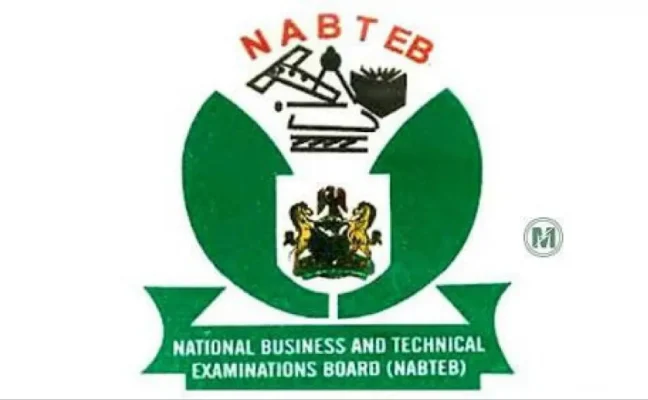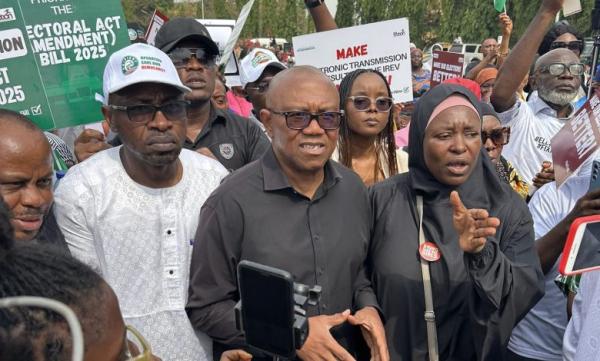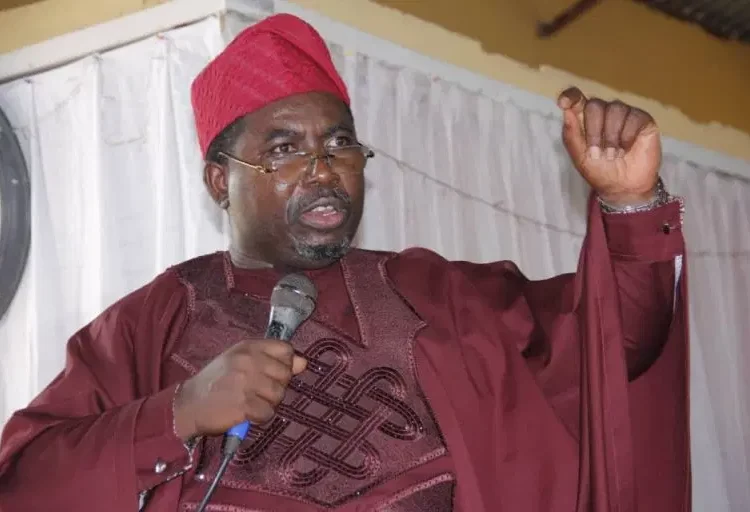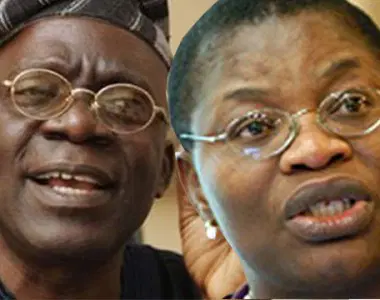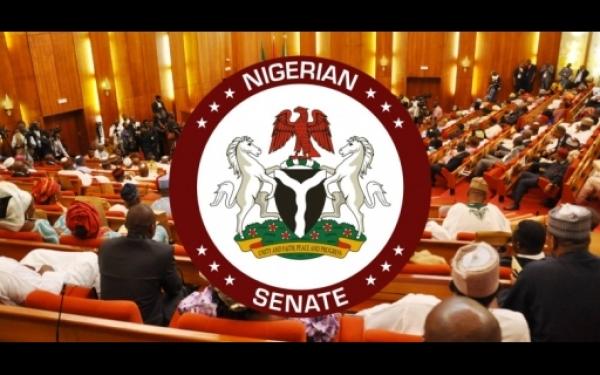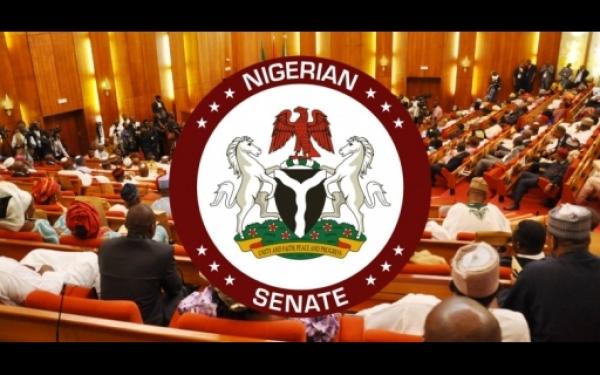
Senate yesterday screened ten out of the 36 ministerial nominees sent to it by President Muhammadu Buhari for confirmation.
The lawmakers, however, postponed the confirmation of those screened yesterday until the rest of the nominees are screened.
Those successfully screened during the exercise, which lasted for about six hours were Senator Udoma Udo Udoma, Dr. John Kayode Fayemi, Chief Audu Ogbeh, Dr. Ogbonnaya Onu and Dr. Osagie Ehanire.
Others are Lt. Gen. Abdulrahman Dambazau, Alhaji Lai Mohammed, Amina Ibrahim Mohammed, Mr. Suleiman Hussaini Adamu and Ibrahim Usman Jibril.
The exercise came short of the thoroughness, excitement and rigour expected by the public, as the senators failed to raise grilling issues, (except for the former governor of Ekiti State) that would have brought out the best and make for proper assessment of the candidates.
Briefing newsmen after the plenary, which ended by 5.15 pm, Senate ad-hoc Committee Chairman on Media and Publicity, Dino Melaye, said another batch of 10 nominees would be screened today.
He expressed optimism that the screening exercise would be completed by Thursday.
Melaye also explained that screening former Governor of Rivers State, Chibuike Amaechi, was not possible yesterday because the report of the committee on petitions, ethics and privileges, which investigated the petition against him, was not ready.
He assured that the report would be ready and deliberated upon today to enable Amaechi’s screening take place alongside others.
Melaye reiterated that all former National Assembly members would be accorded the privilege of early attention in line with the decision of the Senate.
He also restated that only the Senate President or his deputy would enjoy the liberty of questioning any of their former colleagues, as a sign of esprit de corp as is done by other professions like lawyers.
Just before the commencement of the screening exercise, the senators retired to an executive session, which lasted about 45 minutes.
Senate President, Bukola Saraki, who reported the progress that took place during the closed door session disclosed that the senators discussed matters of national importance while the session lasted.
Before the commencement of the screening proper, Saraki read out the final list of the ministerial nominees, which was sent by the President on Monday.
The latest nominees were Khadija Bukar Abba Ibrahim, Claudius Omoleye Daramola, Prof. Anthony Anwuka, Geoffrey Onyeama, Brig. Gen. M. M. Dan-Ali (rtd), James Ocholi and Zainab Shamsuna Ahmed.
The rest are Okechukwu Enelamah, Muhammed Bello, Mustapher Baba Sheburi, Ms. Aisha Abubakar, Heineken Lokpobiri, Adamu Adamu, Prof. Isaac Adewole and Abubakar Bwari Bawa.
The first nominee to be screened yesterday was Senator Udoma Udo Udoma.
After an initial introduction and in line with the new procedure for the screening of the nominees, it was the Senate President that posed the first question to Udoma, who was a two term senator.
Saraki wanted to know what policies Udoma would put in place if confirmed a minister of the Federal Republic of Nigeria.
Udoma noted that revenue from the public sector had been on the decline recently, particularly from the oil and gas sector and stressed the need to drive investment into the country through private sector.
He expressed the need to create enabling environment for private investments to thrive.
Efforts by the Deputy Senate President, Ike Ekweremadu, to follow up with other questions for the nominee was rejected as the senators continued shouting, “bow and go, bow and go.”
Dr. Fayemi who took the hot seat after Udoma answered questions bordering on his stewardship as governor of Ekiti State as well as on education and foreign Affairs.
Responding to questions posed by Senator Olushola Adeyeye (Senate Whip) regarding the debt burden he left as well as the new Government House he built while in office, Fayemi explained that he met a debt burden of N30bn when he assumed office but was able to reduce it to N18bn by the time he left.
He stated that he inherited a monthly income status of N3bn, with a monthly bill of N2.4bn. He disclosed that he used his contacts to get the World Bank, USAID, DFID, etc to raise some funds for infrastructural development of the state, including a N25bn bond.
Commenting on the Government House project, Fayemi explained that by the time he assumed office, he operated from a two bedroom office, which was very unbefitting for the state.
According to him, with N2.5bn, he prudently built a legacy Government House for the state, which remains a project of envy till date.
Fayemi also underscored the need for Nigeria to close the gap between the rich and the poor.
He said it was unfortunate that no fewer than 110 million Nigerians lived below the poverty line on two dollars per day.
Audu Ogbeh, who mounted the saddle after Fayemi, while responding to question on the frequent cross carpeting by Nigerian politicians, explained that party movement happen everywhere, especially in emerging democracies.
He attributed the development to lack of democratic principles, which he said drives anger and frustrations among politicians.
Ogbeh condemned the hijacking of party leadership by the president and governors.
Commenting on how to grow agriculture in the country, the former PDP National Chairman blamed the high interest rate as a factor that affects borrowing by farmers to improve production.
He suggested the deployment of extension officers to every locality for the education of farmer on ways of growing the right plants, fish production as a critical measure for growing the agric sector.
Minority Leader, Senator Godswill Akpabio, cut Ogbeh short when he rose to announce that the nominee should be made to bow and go because he was the contribution of PDP to APC.
Dambazau, former Chief of Army Staff, who is expected to be posted to the defence ministry to serve as minister in a passing response to the issue of Boko Haram, described the group as a conflict, in the sense, according to him that, “they want something we do not want.”
He stated that Boko Haram “is an issue that has the face of religion.”












